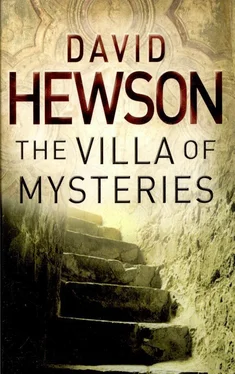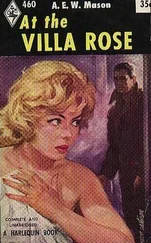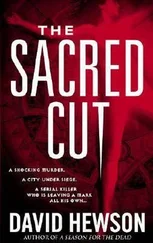He didn’t want to say any more.
“As if it’s my fault?”
He stared at his shoes. “Yeah.”
She thought of slapping him out of this state, then decided it might not be the best decision in the circumstances.
“But it isn’t. Is it? Look at me, Silvio, for God’s sake.”
He did. His mournful face wasn’t a pretty sight.
“Say ”It’s not your fault, Teresa.“ ”
“It’s not your fault, Teresa.”
“Good. So what is their… theory, if you can call it that.”
“They don’t have one. They think there’s some mob connection with the mummy girl from way back. They think—and this is something they do not want to face—that Barbara Martelli was getting paid by one side to keep tabs on things. Informing. Running errands.”
She couldn’t get that black helmet bobbing at the car window out of her head. “That was an errand?”
“They don’t really know, Teresa. They’re still in shock I think.”
“And Randolph Kirk? Where’s he supposed to fit in?”
“When you started talking to him someone got worried he might blab about something or other and sent Barbara out to whack him and nip it all in the bud. They didn’t want witnesses either so she went after you.”
“The prof being in the mob too, then. I mean, that’s how most Mafiosi hide out from the cops these days, isn’t it? By holding a chair in classical antiquities at the University of Rome or something?”
“Didn’t get that far,” he mumbled. “Didn’t like to ask.”
“And they really think the Julius kid is just coincidence?”
“They don’t know what to think. You know what they’re like. They’re primitive organisms. They don’t multitask. There’s only so much they can handle at any one time. Also they got lots of staff off with this virus thing. Hell, so have we.”
She ran a hand through her hair. She hadn’t been as careful as normal with it that morning. It was a mess, if she were honest with herself. Just like the old days. “But, Silvio. Suzi Julius is still alive. At least until tomorrow, if I’m right. Doesn’t anyone understand that?”
He muttered something about priorities and how it was unfair to throw all this at him, then looked helpless again. She hated herself for venting her anger on this hapless minion. It was cruel, unjustified. It was the kind of thing cops did.
“Sorry,” she whispered. “It’s not aimed at you. It’s aimed at me if you want to know.”
He put his hand on her arm, which was, all things considered, a little creepy. “Let’s just go back inside, Teresa. We’ve got work to do and you and me are just about the only two people here right now who aren’t sneezing up buckets. Let’s keep our heads down and get on with things until it all blows over. They’re paid to deal with this crap, not us. If we stay quiet, maybe it’ll all go away. They’ll find what they want and forget about the rest.”
Which was a nice idea, she thought, and one that had not a snowball in hell’s chance of becoming reality.
“There’s nothing in there you and the rest of the team can’t handle,” she said abruptly. “Let’s face it. You don’t need to be a genius to know how the beautiful Barbara and the professor died. And the bog girl’s there more for the science than the criminology. We might as well admit it. We’ve got no answers for them. We should be trying to make sure Suzi Julius doesn’t go into our in-tray instead.”
He took his hand away. He looked scared. “That’s what they get paid to do. We’ve got a big workload on. I can’t cope on my own.”
“You can cope, Silvio,” she said. “You can cope better than you know.”
“What if something else happens? What if—”
She took his arm again, smiling. “Look. Statistics. How many violent deaths do we get in Rome? There’s a week’s quota lying on the slab right now. Nothing’s going to happen today. Trust me. I need a break. I need to think.”
The pale, flabby face blushed off-pink. “You’re going somewhere,” he said accusingly. “I know you. This is like yesterday all over again. You’re going somewhere and it isn’t good at all.”
“I just thought I’d—”
“No! No ! Do not tell me because I don’t want to hear. Two wrongs don’t make a right—”
“I wasn’t wrong! Stupid maybe. But two stupids just make you… stupid. And most of the jerks in there think that of me anyway. So where’s the harm?”
“Please.” His little hands were together now, praying. “I beg of you, Teresa. For my sake. Don’t do this. Whatever it is.”
She kissed him lightly on the cheek and watched the blood make a big rush all the way from his jowls to his eye sockets. “Nothing’s going to happen, Silvio. Listen to your friend Teresa. Just hold the fort for an hour and then I’ll be back. And they’re none the wiser.”
He looked wrecked. He looked terrified. “An hour. Is that an earth hour? Or one of those special hours you have on that planet of yours?”
“Silvio, Silvio,” she sighed. “Tell me. What could possibly go wrong?”
BENIAMINO VERCILLO WAS a measured, organized man. He liked to start work early, at seven prompt each weekday morning, seated at his desk in the cellar of a block off the Via dei Serpenti in Monti. The place abutted a busy optician’s on the street. It was a fixed-rent single room of just twenty-five square metres, with no windows, just a door to the iron steps leading down from the street. Space enough to house Vercillo and the female secretary who had been servicing him, in more ways than one, these last ten years. After the bus ride from the quiet suburb of Paroli near the Via Veneto he took breakfast—a cappuccino and a cornetto—every morning in the café across the road. Lunch was a piece of pizza rustica from one of the local shops. By six he was back home, work done for the day, ready for the life of a middle-aged Roman bachelor. Vercillo was now fifty-two. He preferred plain dark suits, pressed white shirts, a dark tie and old, worn shoes. He was, it seemed to him, the most insignificant man to walk this busy little street that ran from the dull modern thoroughfare of Via Cavour over to the fashion shops in Via Nazionale.
This was, at least, the public image he wished to present, and for good reason. Vercillo was Emilio Neri’s bookkeeper. In his head lay every last detail of the big hood’s Italian investments, legitimate and crooked. Those that could be written down sat stored on the single PC in Vercillo’s office, ready to be transcribed for the annual tax forms, accurate down to the last cent. Vercillo was a good accountant. He knew what he could get away with and what would push the tax inspectors too far. Those items that were of a more delicate nature, Vercillo recorded differently. First to a prodigious memory, honed from the mathematical tricks he used to pull to impress the teachers when he was at school. Then written down, using a code Vercillo never revealed to anyone—least of all Emilio Neri—and kept in a safe, hidden in the walls of his subterranean office.
It was a satisfactory situation. Vercillo made the best part of half a million euros a year keeping Neri out of harm’s way. And that secret code lent Vercillo some safety from the fat man’s wrath should things go wrong. Vercillo knew only too well what fate befell accountants who served their mob bosses badly. Foul up and you might get away with a vicious beating. Steal and you were dead. But do the job well, keep yourself out of sight, and hold a little key in your head that no one else could share… then, Vercillo reasoned, everyone could be happy. The authorities stayed at a safe distance. Neri knew that if Vercillo stumbled up the stairs from his office and fell beneath the wheels of the little 117 tourist bus the secrets of his empire would remain secure, unintelligible to the taxman and the DIA even if they found them. For his part, Vercillo maintained a measure of security, a hold over Neri that both men recognized without having to state it. This was convenient. It meant that he rarely had to call Neri except for information, and the big old hood hardly ever had to trouble him. This was the way it ought to be. He was an accountant. A money man. Not a foot soldier, out looking for trouble. He liked it that way.
Читать дальше












